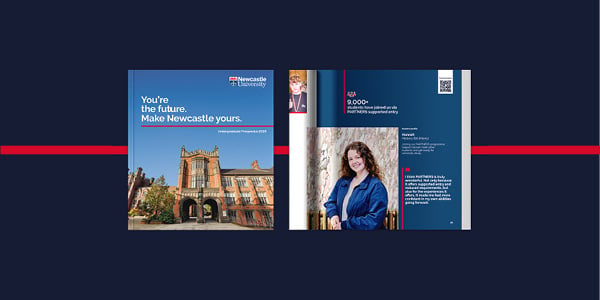International Baccalaureates | IB requirements for universities
30 January 2026 | By: Caroline Hardaker | 2 min read.jpg)
Are you an IB student considering going to university in the UK? Find out everything you need to know about IB requirements for universities, including how UCAS points work...
Contents:
- What is an International Baccalaureate (IB)?
- Can I get into a UK university with an IB?
- How to get into university with an IB
- How do UCAS points and entry requirements work for IB?
- Who can I ask for help with undergraduate entry requirements?
What is an International Baccalaureate (IB)?
The International Baccalaureate Diploma takes two years and is a subject-based qualification that covers lots of different subjects.
Students doing an IB Diploma will do a mix of six subjects to a standard level, and then carry on with three subjects to a higher level. IB students choose one subject from each of the below areas:
- studies in language and literature
- language acquisition
- individuals and societies
- sciences
- mathematics
- the arts
As well as the above subjects, students also:
- study a philosophical "theory of knowledge" course
- write a mini dissertation-style extended essay
- get involved in sports, volunteering and extracurricular community activities
Students complete these activities as part of the Diploma Programme Core.
Can I get into a UK university with an IB?
The short answer to this is - yes, you can. The process itself is very similar to how A Level students apply to university, only with some very slight differences:
- you will be expected to have taken a higher level in a subject that's related to the one you would like to study at university
- universities might ask for specific results in your higher level subjects, and give you a set number of points to achieve to get in

How to get into university with an IB
To get into university with an IB, you will need to apply through the Universities and Colleges Admissions Service (UCAS).
You will need to complete an online form, upload a personal statement and include one reference who can write about why you're such a great candidate.
Your school will submit your IB predicted grades. You can then pick up to five courses that you would like to apply for (four courses if you're doing a clinical programme like dentistry or medicine). The five courses can be at five different universities, or you can apply to two or more courses at the same university.
How do UCAS points and entry requirements work for IB?
Unlike A Levels, the actual IB Diploma itself doesn't earn you UCAS points, at least under the current system.
However, the elements of the IB, such as the standard level subjects, higher level subjects and extended essays, do earn you UCAS points.
Despite this, students applying to universities having studied an IB are really common, so universities will usually make offers based on IB points, not UCAS ones. Each university will have its own IB points system, with some universities asking for 34 points across all programmes, whereas others may ask for much higher. Find out more about the UCAS and IB points systems.
You can find out how many IB points you need to get to land a space on your chosen course by checking the degree page online. Most universities will break down the different entry requirements there.
Who can I ask for help with undergraduate entry requirements?
If you could use a helping hand getting to grips with your entry requirements, contact our dedicated Student Services team by phone or by filling in their online form.
Find out more:
- UCAS key dates: This is when you need to apply to university
- Find out how to apply to university after a gap year
- Understand how important predicted grades are

Discover the Newcastle experience: Our Undergraduate prospectus will guide you through our world-class degrees, the support you can benefit from, and our beautiful city-centre campus.
